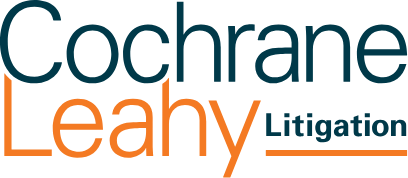If you’re a landlord, tenant, or property agent in Queensland, staying updated with rental legislation is crucial to avoid disputes and ensure smooth tenancies. The Property Stock and Agents Act (PSAA) 2024 introduces significant changes that impact rental applications, rent increases, property access, and tenant rights.
These reforms aim to streamline the rental process and protect the rights of both tenants and landlords. Whether you’re managing an investment property or renting a home, understanding these updates will help you comply with the law and prevent unnecessary conflicts. While you can hire a dispute lawyer in the event of any rental disagreements, it is always better to be familiar with the laws that govern the market.
In this blog, we explain the key changes under the PSAA 2024 and their implications for you, helping you avoid potential legal pitfalls.
What is the Property Stock & Agents Act?
The Property Stock and Agents Act (PSAA) refers to the legislation governing the property industry in Queensland, specifically regulating real estate agents, property managers, and rental transactions.
The PSAA 2024 was passed on 23 May 2024, and the new measures will be implemented in two phases, June 2024 and May 2025. The changes aim to address several issues raised by tenants, landlords, and property managers in recent years, including concerns about privacy, fairness, and clarity in rental processes.
Let’s take a closer look at the key updates to the PSAA Act and what they mean for you.
Key Changes to Rental Applications
Standardised Rental Application Form & What You Can’t Be Asked
Under the updated legislation, rental applications must now use a standardised form. This will simplify the rental process for both tenants and property managers. It also prevents agents from asking any unnecessary or irrelevant questions. Key changes include:
- Limited personal data collection: Agents can’t ask for irrelevant details (e.g., marital status, previous rent amounts).
- Improved tenant privacy: Sensitive information must be handled securely.
- Verification of Identity (VOI) rules: Tenants can choose how they verify their identity (online or in person).
How to Submit & VOI Options: Online vs Paper
The PSAA 2024 offers tenants greater flexibility in submitting rental applications. Whether you prefer the convenience of online submissions or the traditional paper method, both options will be available. Agents now have a responsibility to offer these choices and ensure they do not impose unnecessary barriers to the application process.
Rent Increases, Bidding & Periodic Limits
Once-Per-Year Rent Increases & Rent Bidding Ban
Under the updated PSAA, rent increases are limited to once per year, offering tenants greater predictability and security. Additionally, rent bidding, a practice where tenants compete by offering higher rental amounts, has been officially banned. This ensures a fairer environment where rent is set based on the property’s market value rather than speculative bidding wars.
Maximum Rent-in-Advance Rules
The PSAA also imposes new limits on the amount of rent that can be requested upfront. Landlords are now restricted to asking for two weeks’ rent in advance for periodic leases and one month’s rent for fixed-term leases. This helps prevent situations where tenants are asked to pay exorbitant amounts upfront and ensures fairer access to housing.
Access, Entry & Notice Period Requirements
New 48-Hour Notice Rule & Frequency Limits
The Act also introduces new rules around access and entry to rental properties. Agents and landlords must now provide 48 hours’ notice before entering a property, ensuring tenants have time to prepare.
Additionally, there is now a cap on how often an agent or landlord can enter the property. Under the new regulations, entry is limited to twice a week, offering tenants a greater sense of privacy and control over their living space.
Emergencies & Legal Exceptions
There are, of course, legal exceptions to these rules, such as in the case of emergencies. If urgent repairs are needed, or if there’s an issue that requires immediate attention, the usual notice period may be waived. However, these situations must be handled appropriately to ensure tenant safety and respect.
Fixtures, Structural Changes & Maintenance
Requesting Permission for Fixtures or Renovations
Landlords and tenants are also given clear guidelines regarding fixtures and structural changes to rental properties. Tenants now have the right to request permission for minor alterations, such as installing wall shelves. The landlord is expected to respond within 28 days. If denied unfairly, tenants may appeal to the Queensland Civil and Administrative Tribunal (QCAT).
What’s Reasonable & How to Respond
Landlords must be reasonable when responding to these requests. Minor changes should generally be allowed, and any refusal should have a solid reason, such as no drilling into load-bearing walls. Tenants, too, must ensure their requests are within the boundaries of what is considered reasonable under the law.
Impacts & Obligations for Tenants, Landlords & Agents
What Tenants Should Know & Watch For
It’s crucial for tenants to understand their new rights under the PSAA 2024. These include the ability to challenge rent increases, request maintenance, and ensure that their privacy is respected during the application process.
Landlord Responsibilities & Compliance Risks
For landlords, staying informed about the changes and keeping your practices compliant is key. Failure to do so can result in disputes, fines, or legal action. If you’re unsure about your obligations, it’s wise to hire a dispute lawyer to ensure you’re on the right side of the law.
Agent Professional Obligations & Training (CPD)
Real estate agents, too, face new professional obligations under the updated PSAA. Agents are now required to complete continuing professional development (CPD) to stay current with the latest regulations. This ensures they can handle the complexities of the new rental laws and act in the best interest of both landlords and tenants.
Practical Tips & Checklist
To help landlords and agents stay compliant, we’ve put together a quick checklist:
- Review rental application forms and update as necessary
- Ensure compliance with rent increase and bidding bans
- Update your processes for tenant access and privacy
- Keep up with maintenance requests and repair timelines
Landlords and agents should also ensure they have the right legal resources in place, including access to commercial litigation lawyers in Brisbane for more complex disputes. In case of defamation or other legal concerns related to rental agreements, defamation legal services are available to resolve any issues.
Conclusion
The Property Stock and Agents Act 2024 brings much-needed clarity to Queensland’s rental market. Whether you’re a landlord, tenant, or agent, understanding these changes will help ensure that your rental practices are compliant and minimise the risk of disputes.
From drawing rental contracts to renewing lease agreements, always seek professional legal expertise to avoid potential future disputes. Call 0421 608 459 to schedule a consultation.

